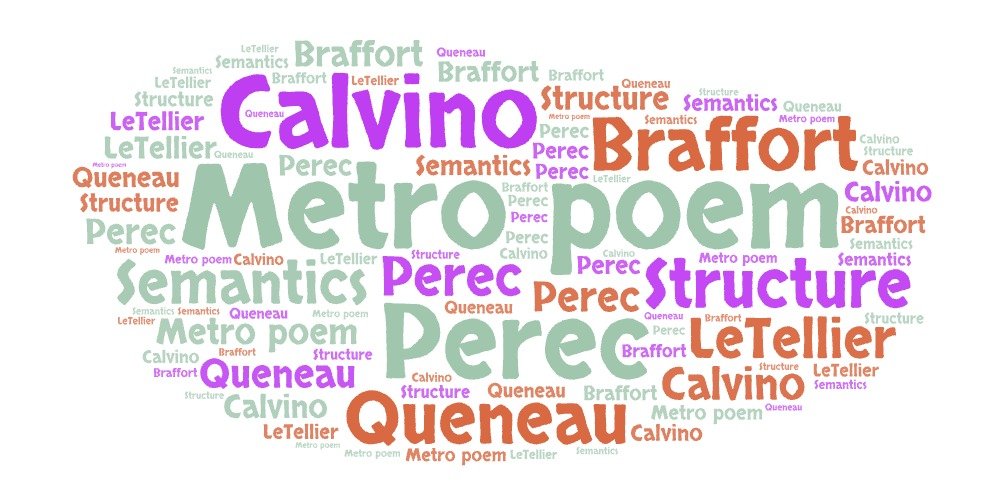I'm running a course soon called Creative Writing Using Constraints. Before you race off to read something else, permit me to reassure you that the idea does have a bearing on teaching computing and related subjects. The course is based on a French writing movement called the Oulipo, which means Workshop of Potential LIterature.
Many of its members, especially in the early days (1960s) were very interested in how writing could be not exactly automated perhaps, but based on algorithms and related ideas.
Firstly, Queneau, the joint founder of the Oulipo, was an amateur mathematician. It was he, after all, who devised the Hundred Thousand Billion Poems, which is based on the mathematics of combinations. The author wrote ten sonnets. Each of the 14 lines of each one can be cut out and used in any of the other poems. The result is more possible sonnets than one could ever hope to read in several lifetimes. Queneau calculated that someone reading the book 24 hours a day would need 190,258,751 years to complete it.
Secondly, the early Oulipians in particular were interested in how mathematics and literature could be combined. Calvino, for example, wrote about using cybernetics in literature, while his If On A Winter’s Night a Traveller includes a technique for learning about the gist of a book by counting up the number of times a word like blood, or murder, for example, occurred. This was several decades before the invention of word clouds.
In his book, 99 Variations On A Proof, Philip Ording, states:
My motivation for this project, from beginning to end, has been to try to conceptualize mathematics as a literary or aesthetic medium.
In my course, I'm not going to be talking specifically in terms of computing, but I will be exploring some interesting ideas, at least one of which is based on an algorithm.
That is assuming it goes ahead. At the moment only two people are booked on it. Apparently bookings are down right across all the departments of the college, presumably because of finance. Anyway, we have to make a decision next Monday (16th June). If there are not at least five people signed up by then, the course will be cancelled, which would be such a shame. Every time I’ve run it we all learn loads and have a good laugh.
Here is what people said about the course last year:
Thanks for everything Terry, a truly enjoyable day
Terry, thank you for a learning experience which surpassed my already-high expectations! The course was superb: the atmosphere in the classroom was welcoming and friendly, the resources were excellent, and although in advance of the course I had felt nervous about the prospects of both working in collaboration with other students and sharing my own thoughts and work, these in fact proved to be the aspects of the course which I enjoyed the most! I felt supported throughout, and learned a great deal about writing with constraints. I'm looking forward to putting what I learned into practice in my own writing projects. I can't wait to take another course with you - thank you, Terry!
Friendly, knowledgeable.
Interested? Here is the link:

